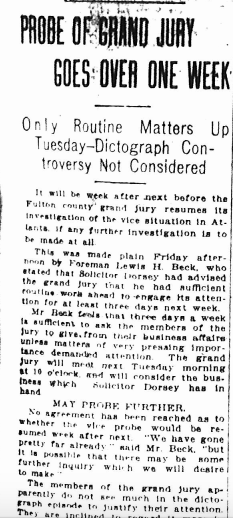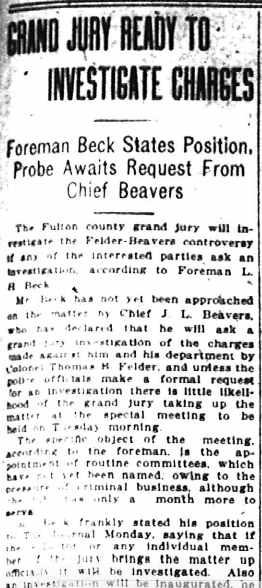 Another in our series of new transcriptions of contemporary articles on the Leo Frank case.
Another in our series of new transcriptions of contemporary articles on the Leo Frank case.
The Atlanta Constitution
Friday, July 11, 1913
Insurance Man Who Made Affidavit Says Conversation Was With Some Other Negro—Saw Conley at Station.
It was disclosed Thursday afternoon that William H. Mincey, the insurance agent who has made an affidavit to the effect that Jim Conley on the date of the Phagan murder drunkenly admitted that he had slain a girl had appeared at police headquarters during Conley’s grilling and had positively failed to identify the negro.
This was told a Constitution reporter by Detective Harry Scott of the Pinkertons and Detective Chief Newport Lanford. The insurance agent, they declared, had come to the police station while Conley was being cross-examined and had asked to see the prisoner.
He wanted to see if he could identify Conley as the negro whom he had seen drunk at the corner of Electric and Carter streets on the afternoon of Saturday, April 26. He was admitted to Conley’s presence. After asking the negro a number of questions pertaining to a conversation he had held with the black encountered at Electric and Carter streets, Mincey, the detectives assert, declared he could not identify the suspect.
He’s not the man I saw, Lanford and Scott say the insurance man declared.
Conley was asked by Mincey on that date if he had not talked with him about the issuance of a life insurance policy. Conley denied having ever seen the man. Mincey, the detectives say, was positive in his declaration that Conley was not the negro with whom he had held the conversation.
Did Not Approach Detectives

 Another in
Another in  Another in
Another in  Another in
Another in 
 Another in
Another in  Another in
Another in 


